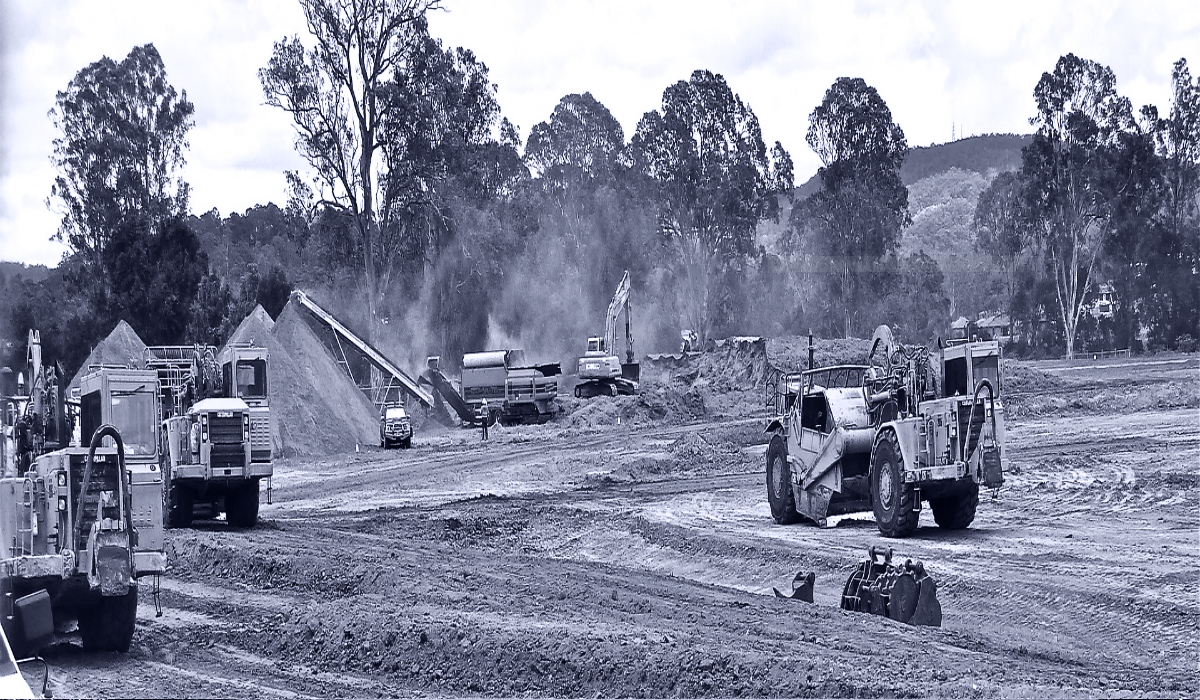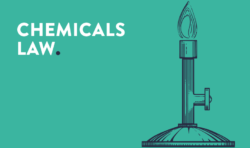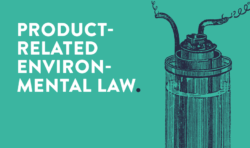In this context, the EU Commission has submitted a Proposal for a Regulation of the European Parliament and of the Council on the making available on the Union market as well as export from the Union of certain commodities and products associated with deforestation and forest degradation and repealing Regulation (EU) No 995/2010 on 17.11.2021. In this respect, the institutions involved in the legislative process have reached an agreement within only one year. On 19.04.2023, the Parliament has now voted with a broad majority in favor of the regulation in the trilogue version.
A. Background
Every year, approximately 10 million hectares of forest are destroyed worldwide. This corresponds to about one third of the territory of the whole of Germany. As a result, habitats for animals and plants, valuable air and soil purification functions and CO2 storage capacities are lost and there are globally effective, negative effects on the climate. Because consumption in the EU in particular contributes to a not inconsiderable extent to deforestation and forest degradation in all parts of the world, the EU is now trying to put a stop to rampant deforestation. Since the conversion of forests to agricultural land triggers about 90% of deforestation, the focus is on agricultural products and products made from them.
Due to the comprehensive nature of the new regulation on deforestation-free supply chains, Regulation (EU) No. 995/2010, which previously applied only to wood and wood products, is obsolete and therefore repealed. In terms of content, the prohibitions therein will be absorbed into the new requirements, although there will be certain transitional periods in order to avoid temporal regulatory gaps in this context (cf. Art. 35 of the Regulation on deforestation-free supply chains).
B. Products and actors covered
The new regulation will entail market bans and due diligence requirements for the following products and goods made from them: cattle, cocoa, coffee, palm oil, rubber, soy and wood. The specific products covered are further specified in Annex I of the Regulation via references to customs tariff numbers. It should be noted that the regulation will not apply to products made entirely from secondary raw materials, such as wood-based materials made from waste wood.
The main or primary obligated parties (“operators” in the wording of the Regulation) are all companies that make relevant products commercially available for the first time on the EU market or export such products commercially from the EU. The relevant role definition in Art. 2 para. 12 of the Regulation does not initially make any distinction between economic operators located in the EU and those located outside the EU. However, if the economic operator in question is not established in the EU, Art. 7 of the Regulation stipulates that in this case the economic operator established in the EU who makes the covered products available on the EU market for the first time is nevertheless deemed to be the primary obligated party. These primary obligated parties must comply with the core obligations of the new regulation (see below).
Mere traders, who do not also fall under the definition of operators, are to be distinguished. According to Art. 2 para. 13 of the Regulation, traders are all those who make covered products available on the market on a commercial basis. However, it should be noted that traders who are not SMEs within the meaning of Directive 2013/34/EU are considered operators according to Art. 4a para. 2 of the Regulation and must fulfill all obligations in this regard. Ultimately, the trader-specific limited canon of obligations, which includes in particular information procurement and retention obligations, in Art. 4a paras. 3-5 of the Regulation only applies to those traders who fall under the SME definition.
C. Market bans and due diligence obligations
While the German supply chain due diligence act (LkSG) “only” provides for due diligence obligations and does not deny marketability to products manufactured in violation of them, the new Regulation on deforestation-free supply chains provides for a different regulatory system. Therefore, in order to understand the new requirements, it is important to look at the systematics of the legal act and the connecting factors of the respective obligations in an unbiased manner and in the specific context.
The central prohibition norm of the new Regulation is Art. 3, which contains three cumulative requirements that must all be fulfilled for the products to be marketable in this context:
- Deforestation-free
The term “deforestation-free” is defined in Art. 2 para. 8 of the Regulation and includes two categories of protection. The first category concerns products that must not contain, be fed with, or be made using commodities produced on land that has been subject to deforestation after 01.01.2021. The second category explicitly concerns products that may not contain wood or be made using wood if the required wood was harvested in a manner that leads to forest degradation after 01.01.2021.
The so-called cut-off date of 01.01.2021, which extends into the past, is of central importance in this context. While the market bans and due diligence obligations will not be applicable until the start of the new regulation, the cut-off date will extend approximately three years into the past. This is particularly to avoid increased (preventative) logging and forest degradation during the current legislative process.
In addition, it is noteworthy that for the market bans to take effect, it does not matter whether any deforestation or forest degradation was carried out legally or illegally. In this respect, the EU fears that, in order to protect its own agriculture and forestry, there could be a legislative “race to the bottom” in some countries with regard to national protection standards of forests if products from legal logging and forest degradation were not covered by the traffic bans.
- Compliance with relevant legal provisions in the country of production
In addition to the deforestation issue mentioned in the title of the Regulation, the Regulation also contains a somewhat hidden requirement for compliance with “relevant legal provisions in the country of production”. However, a closer look at the topics covered by this Regulation quickly reveals that it covers an enormously broad spectrum of regulatory areas which, when viewed in the light of day, no longer have any (direct) connection with the protection of forests. According to the relevant definition in Art. 2 para. 28 of the Regulation, the economic operators concerned must comply with the requirements from the following areas: land use, environmental protection, forest requirements including forest management and biodiversity conservation, third party rights, labor law, internationally protected human rights, rights of indigenous groups, tax, anti-corruption, trade and customs law. These were significantly expanded in the trilogue version.
- Submission of a due diligence declaration
The obligation to submit a due diligence declaration is specified in more detail in Art. 4 para. 2 of the Regulation and applies to all operators designated as primary duty holders. This declaration represents, in terms of products (not solely in terms of roles), the conclusion of the measures to be taken to establish that there is either no risk or only a negligible risk that deforestation or forest degradation has occurred in relation to the products concerned. In this context, the due diligence declaration is not a purely internal document, but must be made available to the national competent authority, which assigns an individual reference number per declaration, in a database yet to be established. The reference number assigned in this context must then in turn be communicated in the supplier communication (Art. 4 para. 8 and Art. 4a para. 3 of the Regulation).
In this context, the legally prescribed due diligence obligations from Articles 8-10a of the Regulation have a much more specific significance than is the case, for example, in the context of the LkSG. In the context of the Regulation on deforestation-free supply chains, the due diligence obligations, according to their conception and system, serve the purpose of proving that the products were produced without deforestation and without forest degradation within the framework of the underlying process. In addition, it is sufficient to prove that there is only a negligible risk that deforestation or forest degradation may have occurred. The heart of the due diligence obligations is certainly the collection of information, which, in addition to a detailed product description, requires in particular that all geodata of the production areas of the products concerned are recorded with longitude and latitude (Art. 9 of the Regulation). On the basis of the information collected, a comprehensive risk analysis based on 14 reference criteria must then be carried out (Art. 10 of the Regulation), the results of which must be documented together with the information bases and submitted to the competent authority on request. In addition, risk minimization measures must be taken if there are indications of a risk that exceeds the level of a merely negligible risk.
Finally, in this context, reference should be made to the newly introduced country benchmarking system in Art. 27 of the Regulation. According to this, the EU Commission is obliged to classify all countries of the world, or even individual regions within individual countries, into one of three categories: low or high risk of deforestation or forest degradation, or standard risk if neither of the other two categories is relevant. The categorizations are to be published in implementing acts and reviewed periodically. In this context, Art. 12 of the Regulation provides for a reduced scope of the due diligence requirements to be applied in the case of a low risk profile, if other conditions are met. In addition, the regulatory control density is based on the risk categories (cf. Art. 14 paras. 9-10a of the Regulation).
Outlook
The main parts of the new Regulation will be applicable 18 months after its entry into force. With an expected entry into force in mid-2023, it is therefore likely that it will apply from the beginning of 2025.
In view of, firstly, the high threat of sanctions (Art. 23 of the Regulation), secondly, the publication of infringements by name, thirdly, a tightly implemented control architecture on the part of the market and the authorities, and finally, fourthly, the increasing popularity of these topics, the companies concerned should take the requirements seriously and start implementing them at the latest as of the publication of the new Regulation in the Official Journal of the EU. Precisely because of the enormously detailed information required, experience has shown that the process of obtaining information will take a great deal of time and will trigger no small need for explanation on the part of suppliers. In contrast to the LkSG, there is also the threat of a severe market ban when the new Regulation comes into force, if it cannot be proven that the products concerned have been produced without deforestation and without forest degradation, or that there is only a negligible risk of this.
Finally, within the first two years after the Regulation comes into force, the EU Commission will review whether it should be extended to other ecosystems and products. This could lead to an extension to other areas shortly after the regulations come into force.
Do you have any questions about this news or would you like to discuss it with the author? Please feel free to contact: Michael Öttinger





